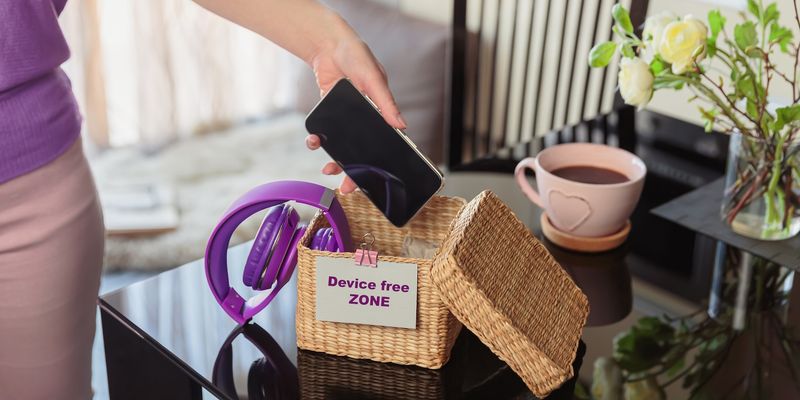The Self-Care Checklist Every Busy Woman Needs
In today’s fast-paced world, women often put themselves last on their priority list. Between career demands, family responsibilities, and social obligations, self-care gets pushed aside. Yet taking time for yourself isn’t selfish – it’s necessary for your health, happiness, and ability to care for others. This checklist will help you incorporate essential self-care practices into your busy life.
1. Morning Mindfulness Ritual

Waking up just 15 minutes earlier creates a pocket of calm before the day’s chaos begins. This small change can transform your entire outlook.
Try simple meditation, gentle stretching, or enjoying tea in complete silence. The key is being present without checking emails or scrolling social media.
Many women report that morning mindfulness reduces anxiety and improves focus throughout the day. Even on your busiest mornings, three deep breaths can center you when a full routine isn’t possible.
2. Digital Detox Hours

Constant connectivity drains your mental energy faster than most realize. Setting boundaries with technology isn’t just nice—it’s necessary for your wellbeing.
Designate specific tech-free zones or times daily. Perhaps during meals, the first hour after work, or the hour before bedtime. Your notifications will wait.
Women who practice regular digital detoxes report better sleep, improved relationships, and decreased anxiety. Start small—even 30 minutes without your phone can feel revolutionary in restoring your natural thought patterns.
3. Five-Minute Joy Breaks

Happiness doesn’t always require grand gestures or hours of free time. Short bursts of activities you genuinely enjoy can sustain your spirit throughout demanding days.
Keep a list of five-minute activities that bring you joy: dancing to one favorite song, stepping outside for fresh air, or flipping through a beautiful art book. These micro-moments matter!
Strategic joy breaks prevent burnout by interrupting stress cycles before they overwhelm you. Your brain actually needs these pauses to process information and maintain emotional balance.
4. Nourishment Without Guilt

Food fuels more than your body—it affects your mood, energy, and mental clarity. Rushed meals or skipping them altogether sends your system into survival mode.
Prepare simple grab-and-go options on busy days: cut veggies with hummus, Greek yogurt with berries, or make-ahead smoothie ingredients. Keep nourishing snacks accessible.
Remember that nourishment includes enjoying treats without self-criticism. The occasional cookie isn’t “cheating”—it’s part of balanced living. When you eat, actually taste your food rather than multitasking through meals.
5. Movement That Feels Good

Forget punishing workouts you dread! Exercise becomes sustainable when it brings pleasure rather than punishment.
Experiment until you discover movement that energizes you—maybe it’s dancing in your kitchen, gentle yoga, walking with a friend, or strength training that makes you feel powerful. The best exercise is always the one you’ll actually do.
Ten minutes of joyful movement beats an hour of exercise you resent. Your body responds better to consistent, moderate activity than occasional intense sessions followed by days of inactivity.
6. Friendship Maintenance Plan

Adult friendships don’t maintain themselves—they require intentional nurturing. Social connections directly impact your health, potentially adding years to your life.
Create a simple system that works for your schedule: monthly coffee dates, weekly text check-ins, or quarterly group gatherings. Quality matters more than quantity.
Friendship shouldn’t feel like another obligation. Be honest about your capacity and choose depth with a few people rather than surface-level connections with many. Even introverts benefit from regular meaningful human connection.
7. Sleep Sanctuary Creation

Sleep isn’t a luxury—it’s essential maintenance for your brain and body. Creating the right conditions makes quality rest possible even for busy women.
Transform your bedroom into a true sanctuary: remove work materials, invest in comfortable bedding, control temperature, and eliminate light pollution. Your phone should sleep elsewhere!
A consistent bedtime routine signals your brain to begin winding down. Simple rituals like light stretching, reading (not on screens), or gentle skincare become powerful sleep triggers when practiced regularly.
8. Permission to Say No

Every “yes” to others is potentially a “no” to yourself. Boundary-setting isn’t selfish—it’s the foundation of sustainable giving and prevents resentment from building.
Practice declining requests without elaborate explanations. “That won’t work for me” or “I can’t take that on right now” are complete sentences. Your time and energy are finite resources.
Start small if saying no feels uncomfortable. Begin with low-stakes situations before tackling bigger boundary challenges. The discomfort of setting limits fades with practice, while the benefits to your wellbeing multiply.
9. Creative Expression Outlet

Human beings are naturally creative, regardless of artistic “talent.” Making something with your hands activates different brain pathways than analytical thinking.
Find one creative practice that appeals to you: journaling, cooking, gardening, painting, singing, or crafting. The process matters more than the product—perfectionism kills creativity.
Even 15 minutes of creative expression can shift your perspective and reduce stress hormones. Making time for creativity isn’t frivolous—it’s mental health maintenance that enhances problem-solving abilities in all areas of life.
10. Quarterly Personal Retreats

Regular pauses for reflection prevent life from becoming a blur of endless activity. Scheduling time to step back gives perspective no daily practice can provide.
Block one day every three months for a personal retreat—even if it’s at home while family is away. Use this time to evaluate what’s working, what isn’t, and what adjustments would better serve you.
These quarterly check-ins help you course-correct before small issues become crises. They’re not luxury—they’re maintenance that prevents burnout and ensures you’re living according to your values, not just reacting to demands.

Comments
Loading…